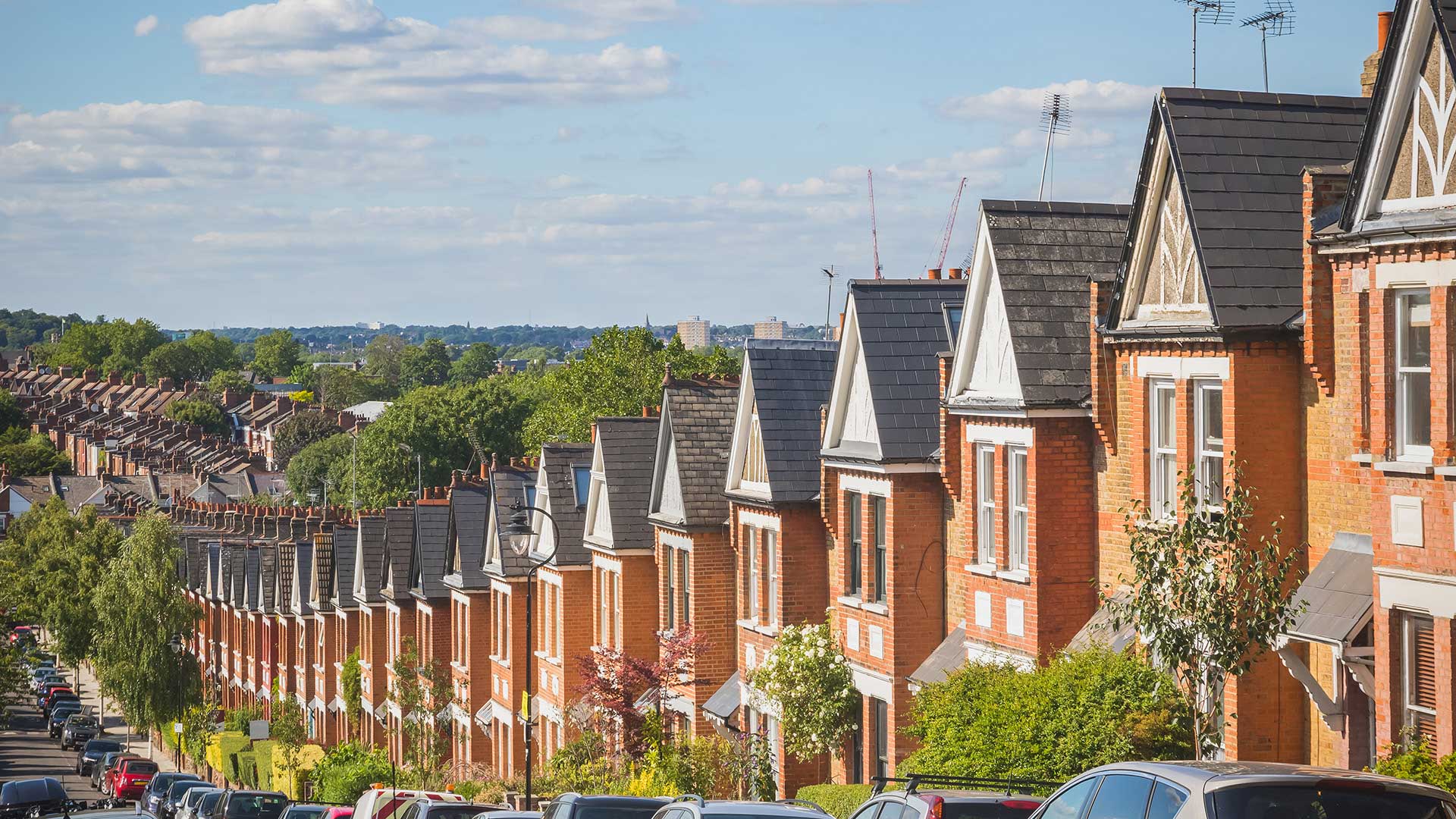Sections
The Britain Barometer is our regular polling of public opinion in Britain. We cover a range of topics including political views and voting intentions, the economy, government policies and emerging issues important to the British public.
29 September 2022, London– Kantar Public’s latest barometer reveals that nearly half of Britons think the government support for household energy bills does not go far enough, while two in five think support for businesses and charities is about right. A majority of Britons think the King and Royal Family are important to the UK in attracting tourism, improving Britain’s image abroad, and helping to bring communities together.
Kantar Public’s research took place between 22 and 26 September with the majority of the fieldwork conducted before the mini budget announcement on Friday 23 September and the start of the Labour Party Conference on 27 September. Key findings include:
- When asked about the government energy support package:
- 48% think that the capping of household energy bills for a typical household at £2,500 a year does not go far enough.
- The same proportion (48%) say that the £400 energy discount does not go far enough.
- While 39% of Britons think the government’s policy of capping energy prices for businesses and charities is about right. However, a similar proportion (37%) do not think these measures go far enough.
- 71% of Britons think the government has handled the rising cost of energy very/fairly poorly (-14 compared with August 2022). 20% think the government have handled it very/fairly well (+9). Only 9% are not sure (+4).
- When asked about which party leader would be best at tackling the UK’s biggest policy challenges, opinion is split with a large proportion simply not knowing who would be better:
- Liz Truss slightly leads Keir Starmer on: reducing serious crime; improving the economy; managing the COVID-19 pandemic; leading Britain if military action was needed; negotiating trade deals; managing Brexit and standing up to Russia.
- Keir Starmer slightly leads Liz Truss on: reducing the cost of living; managing the NHS; tackling climate change; telling the truth and making decisions in the public interest.
However, more Briton’s selected neither party leader or said they do not know for all questions.
- When asked about the three most important priorities for the UK government to improve public life in the UK, Britons cite the following:
- Reducing the cost of living (50%, -5).
- Investing more in NHS capacity (35%, -2).
- Ensuring there won’t be energy shortages in the winter (28%, +1)
- A majority of Britons think the King and the Royal Family are important to the UK for attracting tourism (71%), improving Britain’s image abroad (64%) and helping to bring communities together (55%).
More detailed analysis on themes
1. Rising energy prices
When asked about the government’s energy support package, nearly half of Britons think the support for household energy bills does not go far enough, however two in five Britons think the government measures to support businesses are about right:
- 48% say that the capping of household energy bills for a typical household at £2,500 a year does not go far enough. 32% say it is about right and only 5% think the policy goes too far. 14% don’t know.
- A similar proportion (48%) say that the £400 energy discount does not go far enough. 35% say it is about right and only 4% say it goes too far. 13% don’t know.
- While 39% of Britons think the government’s policy of capping energy prices for businesses and charities is about right. 37% say that is does not go far enough. Only 5% say it goes too far and 18% don’t know.
71% of Britons think the government has handled the rising cost of energy very/fairly poorly (-14). 20% think the government have handled it very/fairly well (+9). Only 9% are not sure (+4).
There remains broad support for the government to take further action to tackle rising energy prices, in addition to the policies they have already announced. However, there has been a small decrease in support for additional measures:
- Removing VAT from energy bills: 74% Strong/slightly support (-10)
- Taking measures to improve household energy efficiency (insulation, new boilers): 74% (-8)
- Increasing the £400 energy discount provided for all households from October: 74% (-7)
- Introducing a windfall tax on oil and gas companies’ profits to fund support for households: 68% (-8)
- Temporarily nationalising energy companies that are unable to lower prices: 53% (-9)
- Permanently nationalising all energy companies and suppliers: 50% (-10)
- Removing green levies from energy bills: 49% (-4)
2. Household-level economic situation
Britons remain pessimistic about the economy, with three quarters thinking the British economy is doing worse than it was a year ago.
- Three quarters of Britons (73%) think the British economy is doing worse than it was a year ago (-3 Vs August 2022). 23% think it is doing much the same (+4) but only 4% think it is doing better (-1).
- The chart below shows the proportion of Britons that think the economy is doing worse than it was a year ago has increased over the last year from 36% in August 2021, while the proportion who think it is doing better has decreased from 22% in August 2021.
- Over half of Britons (51%) think that the British economy will be doing worse than it is now in a years’ time (-4 Vs August 2022). 11% think that it will be doing better than it is now (nc).
- The chart below shows the proportion of Britons who think the economy will be doing worse in a years’ time has increased over the last year from a low of 20% in August 2021. The proportion of Britons who think the economy will be doing better, or about the same has also fallen.
- More than three quarters of Britons (73%, -7 Vs August 2022) think the government has handled the cost of living crisis very/fairly poorly. 18% (+3) think the government has handled the crisis very/fairly well. 9% are not sure (+5).
- The majority of the fieldwork was conducted before the mini budget announcement on Friday 23 September. However, over a quarter of Britons (28%) think the British economy would benefit most from an increase in government spending. 23% think it would benefit from a reduction in government spending, and 14% think it would benefit most from no change in spending. 35% of Britons are unsure.
3. Party Leaders
When it comes to party leaders, opinion is split on whether Liz Truss or Keir Starmer would be best placed to tackle the UK’s biggest policy challenges. A large proportion simply don’t know who would be better.
4. Voting Intentions*
-
- Labour 39% (-1 Vs August 2022)
- Conservatives 35% (+2)
- Liberal Democrats 10% (-4)
- SNP 5% (+1)
- Green 4% (-2)
- Reform UK 3% (+1)
- UKIP 2% (+2)
- Plaid Cymru 1% (nc)
- Other 1% (nc)
*(NOTE: the majority of the fieldwork was conducted before the mini budget announcement on Friday 23 September and the Labour Party Conference which started on Tuesday 27 September).
5. The importance of the King and Royal Family
A majority of Britons strongly/slightly agree that the King and the Royal Family are important to the UK for attracting tourism, improving Britain’s image abroad, and helping to bring communities together:
- Attracting tourism: 71%
- Improving Britain’s image abroad: 64%
- Helping to bring communities together: 55%
- Highlighting issues such as climate change: 50%
- Growing the UK economy: 48%
- Giving a voice to marginalised groups: 38%
Methodological information
A total of 1,146 interviews were conducted online among adults living in Great Britain between the 31 August and 4 September 2023. All interviews were conducted online using the Kantar Research Express. The Kantar Profiles online access panel was the main sample source.
The data was weighted to match population totals for age, gender, 2019 General Election voting patterns, 2016 EU referendum voting patterns, education, region, and likelihood to vote in the next General Election. Any use of this research must cite Kantar Public as the source.
This Britain Barometer was issued under our former global brand name: Kantar Public.
Related insights
03 Oct 2024
Our latest thinking
Subscribe to receive regular updates on our latest thinking and research across the public policy agenda
Our latest thinking
Subscribe to receive regular updates on our latest thinking and research from across the public policy agenda








